Law enforcement and health officials reminded the public that e-cigarettes and using or selling cannabis are illegal in Taiwan, after the arrest of five people in Taipei last week.
Taipei police said over the weekend that they had broken up a criminal organization, whose members have been accused of selling e-cigarette oil containing cannabis extracts.
After surveilling the premises for several days, police officers carried out a raid at a motel in Taipei’s Wanhua District (萬華) last week, in which 94 vaping cartridges and 23 pouches of unknown powdered material were seized.
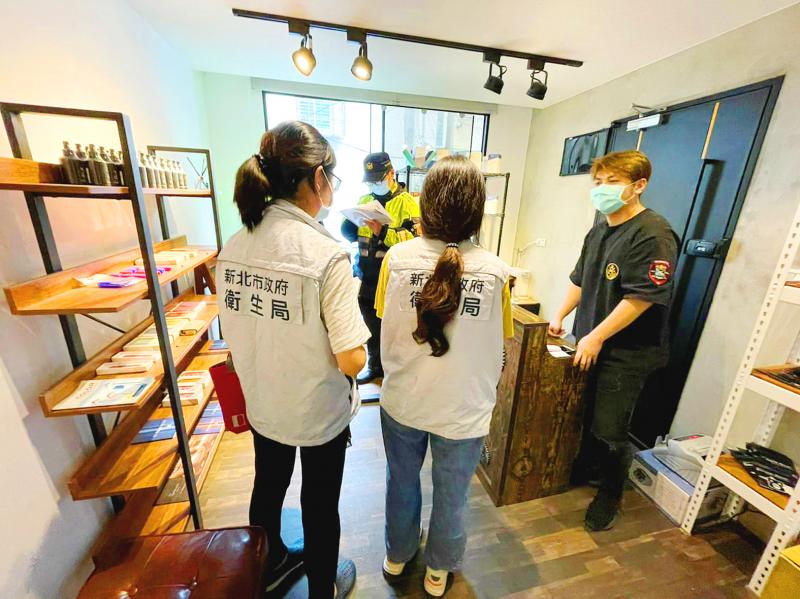
Photo courtesy of New Taipei City Department of Health
Preliminary lab testing revealed that the cartridges contained cannabidiol (CBD) and tetrahydrocannabinol (THC), the main active ingredients in cannabis. The pouches contained ketamine, which is a controlled substance.
A 25-year-old woman surnamed Liu (劉) allegedly led the criminal ring. One modified handgun, 11 bullets and an undisclosed amount of cash were also seized.
Investigators said that Liu’s group had been selling the vaping cartridge oil for the past year.
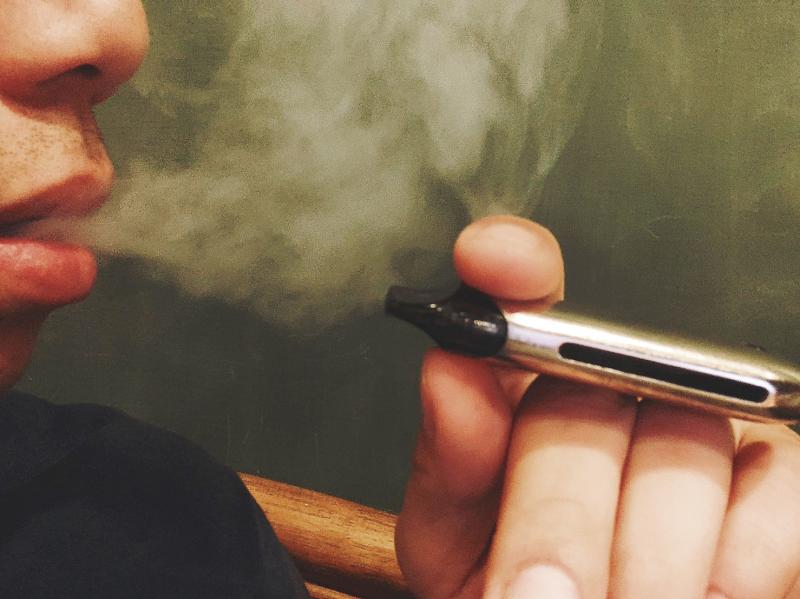
Photo: Cheng Ming-hsiang, Taipei Times
The group made an estimated NT$10 million (US$359,544) in illegal proceeds, they said.
The suspects in the case are facing charges of contravening the Narcotics Hazard Prevention Act (毒品危害防治條例), and for possession of illegal firearms in contravention of the Controlling Guns, Ammunition and Knives Act (槍砲彈藥刀械管制條例).
Investigators said that Liu and ring members allegedly promoted their products to young people via social media and online platforms.
The CBD and THC oil were branded as “Cookies,” “Sherbet,” “Dream,” “Skywalker” and other names, they said.
Officials at the Ministry of Health and Welfare yesterday said that e-cigarette and related vaping devices have not been approved in Taiwan, and their use therefore is illegal, regardless of their contents.
When cannabis or other drugs are added to vaping oil, sellers and customers could be charged with contravening the narcotics act, health officials said.
Regarding oils that contain nicotine or tobacco, and promoting such products, sellers and buyers could be indicted under the Tobacco Hazards Prevention Act (菸害防制法) or the Pharmaceutical Affairs Act (藥事法), they added.
CBD in pharmaceutical products has received approval for medicinal use in Taiwan, when prescribed by a physician and the request is approved by authorities.
However, general sale of CBD is not permitted. Such products can contain THC at less than 10 parts per million, but would otherwise be scheduled as a Class 2 illegal drug, officials said.
Ministry of Justice officials said yesterday that e-cigarettes and other vaping devices are being found more commonly on school campuses, often containing cannabis.
Authorities have said that e-cigarettes containing nicotine and tobacco are just as addictive as regular cigarettes.
The chemicals e-cigarettes contain, such as flavoring ingredients, can cause severe and permanent lung diseases within a short period of time, they said.
The ministry has said that it is not considering legalizing or decriminalizing cannabis or other substances.
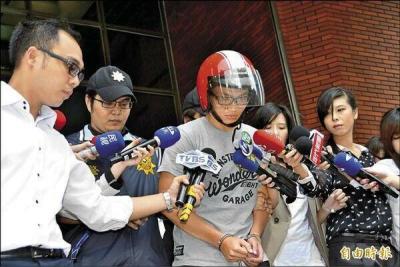
Death row inmate Huang Lin-kai (黃麟凱), who was convicted for the double murder of his former girlfriend and her mother, is to be executed at the Taipei Detention Center tonight, the Ministry of Justice announced. Huang, who was a military conscript at the time, was convicted for the rape and murder of his ex-girlfriend, surnamed Wang (王), and the murder of her mother, after breaking into their home on Oct. 1, 2013. Prosecutors cited anger over the breakup and a dispute about money as the motives behind the double homicide. This is the first time that Minister of Justice Cheng Ming-chien (鄭銘謙) has
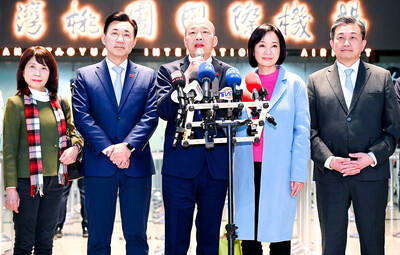
BITTERLY COLD: The inauguration ceremony for US president-elect Donald Trump has been moved indoors due to cold weather, with the new venue lacking capacity A delegation of cross-party lawmakers from Taiwan, led by Legislative Speaker Han Kuo-yu (韓國瑜), for the inauguration of US president-elect Donald Trump, would not be able to attend the ceremony, as it is being moved indoors due to forecasts of intense cold weather in Washington tomorrow. The inauguration ceremony for Trump and US vice president-elect JD Vance is to be held inside the Capitol Rotunda, which has a capacity of about 2,000 people. A person familiar with the issue yesterday said although the outdoor inauguration ceremony has been relocated, Taiwan’s legislative delegation has decided to head off to Washington as scheduled. The delegation
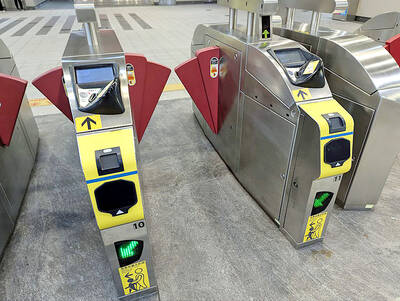
TRANSPORT CONVENIENCE: The new ticket gates would accept a variety of mobile payment methods, and buses would be installed with QR code readers for ease of use New ticketing gates for the Taipei metro system are expected to begin service in October, allowing users to swipe with cellphones and select credit cards partnered with Taipei Rapid Transit Corp (TRTC), the company said on Tuesday. TRTC said its gates in use are experiencing difficulty due to their age, as they were first installed in 2007. Maintenance is increasingly expensive and challenging as the manufacturing of components is halted or becoming harder to find, the company said. Currently, the gates only accept EasyCard, iPass and electronic icash tickets, or one-time-use tickets purchased at kiosks, the company said. Since 2023, the company said it

Another wave of cold air would affect Taiwan starting from Friday and could evolve into a continental cold mass, the Central Weather Administration (CWA) said yesterday. Temperatures could drop below 10°C across Taiwan on Monday and Tuesday next week, CWA forecaster Chang Chun-yao (張竣堯) said. Seasonal northeasterly winds could bring rain, he said. Meanwhile, due to the continental cold mass and radiative cooling, it would be cold in northern and northeastern Taiwan today and tomorrow, according to the CWA. From last night to this morning, temperatures could drop below 10°C in northern Taiwan, it said. A thin coat of snow